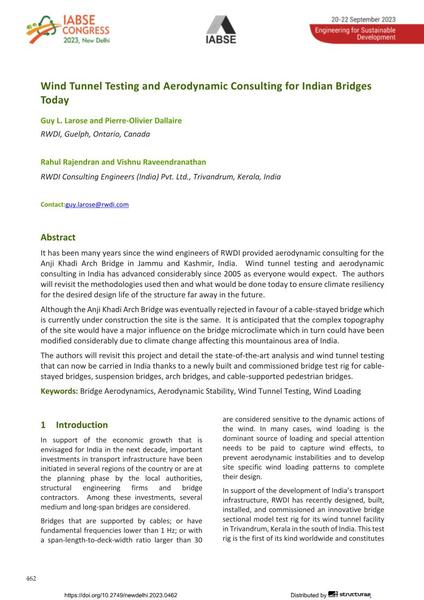Wind Tunnel Testing and Aerodynamic Consulting for Indian Bridges Today

|
|
||||||||||
Détails bibliographiques
| Médium: | papier de conférence | ||||
|---|---|---|---|---|---|
| Langue(s): | anglais | ||||
| Conférence: | IABSE Congress: Engineering for Sustainable Development, New Delhi, India, 20-22 September 2023 | ||||
| Publié dans: | IABSE Congress New Delhi 2023 | ||||
|
|||||
| Page(s): | 462-463 | ||||
| Nombre total de pages (du PDF): | 2 | ||||
| DOI: | 10.2749/newdelhi.2023.0462 | ||||
| Abstrait: |
It has been many years since the wind engineers of RWDI provided aerodynamic consulting for the Anji Khadi Arch Bridge in Jammu and Kashmir, India. Wind tunnel testing and aerodynamic consulting in India has advanced considerably since 2005 as everyone would expect. The authors will revisit the methodologies used then and what would be done today to ensure climate resiliency for the desired design life of the structure far away in the future. Although the Anji Khadi Arch Bridge was eventually rejected in favour of a cable-stayed bridge which is currently under construction the site is the same. It is anticipated that the complex topography of the site would have a major influence on the bridge microclimate which in turn could have been modified considerably due to climate change affecting this mountainous area of India. The authors will revisit this project and detail the state-of-the-art analysis and wind tunnel testing that can now be carried in India thanks to a newly built and commissioned bridge test rig for cable- stayed bridges, suspension bridges, arch bridges, and cable-supported pedestrian bridges. |
||||
